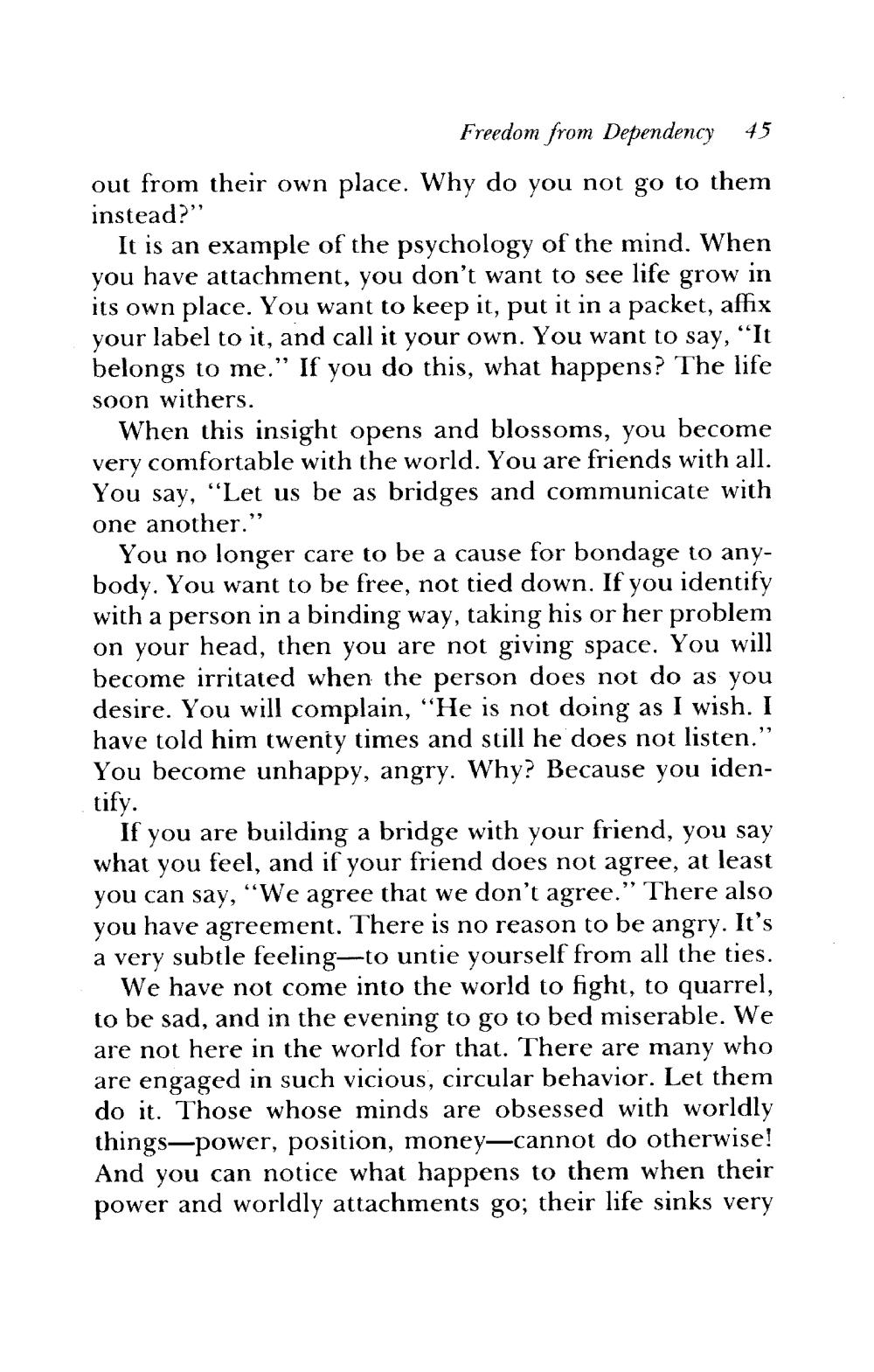________________
Freedom from Dependency 45 out from their own place. Why do you not go to them instead?”
It is an example of the psychology of the mind. When you have attachment, you don't want to see life grow in its own place. You want to keep it, put it in a packet, affix your label to it, and call it your own. You want to say, “It belongs to me.” If you do this, what happens? The life soon withers.
When this insight opens and blossoms, you become very comfortable with the world. You are friends with all. You say, “Let us be as bridges and communicate with one another.”
You no longer care to be a cause for bondage to anybody. You want to be free, not tied down. If you identify with a person in a binding way, taking his or her problem on your head, then you are not giving space. You will become irritated when the person does not do as you desire. You will complain, "He is not doing as I wish. I have told him twenty times and still he does not listen.” You become unhappy, angry. Why? Because you identify.
If you are building a bridge with your friend, you say what you feel, and if your friend does not agree, at least you can say, “We agree that we don't agree.” There also you have agreement. There is no reason to be angry. It's a very subtle feeling—to untie yourself from all the ties.
We have not come into the world to fight, to quarrel, to be sad, and in the evening to go to bed miserable. We are not here in the world for that. There are many who are engaged in such vicious, circular behavior. Let them do it. Those whose minds are obsessed with worldly things-power, position, money—cannot do otherwise! And you can notice what happens to them when their power and worldly attachments go; their life sinks very




